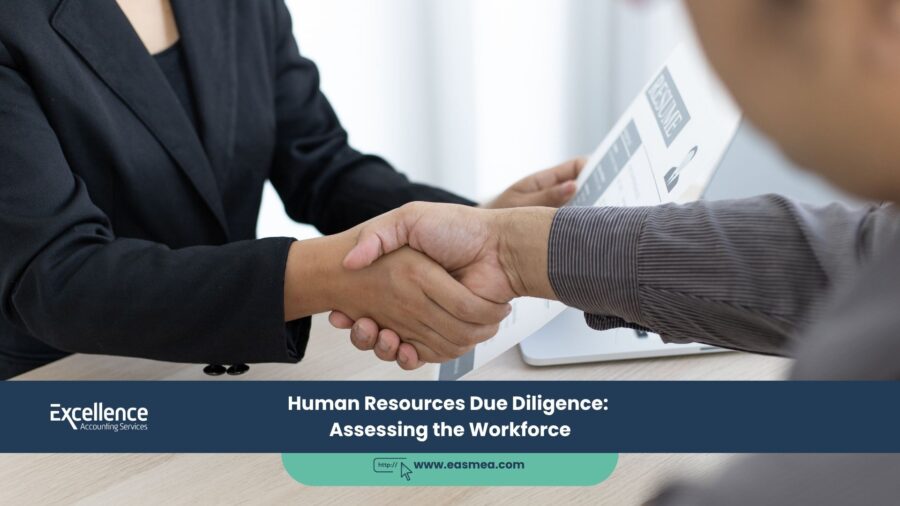Human Resources Due Diligence: Assessing the People Behind the Numbers
In any merger or acquisition (M&A), the spotlight naturally falls on the financials. Buyers pour over balance sheets, income statements, and cash flow projections to determine a company’s financial health. However, a successful acquisition depends on much more than just numbers. A company’s most valuable—and often most complex—asset is its people. This is where **Human Resources (HR) Due Diligence** becomes a critical, and frequently underestimated, component of the overall investigation.
HR due diligence is the process of systematically reviewing a target company’s workforce, HR policies, compliance history, and culture to identify potential liabilities, risks, and synergies. It seeks to answer crucial questions: Are we acquiring a talented and motivated team, or one rife with conflict and compliance issues? What is the true cost of the workforce, including all hidden liabilities? And how will the two company cultures merge without derailing the entire transaction?
In the diverse and rapidly evolving UAE market, ignoring HR due diligence is a significant gamble. Understanding the intricacies of local labor laws, visa regulations, and cultural dynamics is essential. This guide will explore the key areas of HR due diligence, explaining why a thorough assessment of the human element is fundamental to any successful M&A deal.
Key Takeaways
- People are a Key Asset and Risk: HR due diligence assesses the value, cost, and potential liabilities associated with a target company’s workforce.
- Compliance is Crucial in the UAE: The review must verify compliance with UAE Labour Law, WPS, Emiratisation requirements, and employee visa regulations to avoid inheriting fines and legal issues.
- Culture Can Make or Break a Deal: A significant clash in company cultures is a leading cause of M&A failure. HR due diligence aims to identify and plan for these cultural differences.
- Uncover Hidden Costs: The process uncovers hidden financial liabilities such as unfunded end-of-service gratuity, pending employee lawsuits, or expensive benefit plans.
- Identify and Retain Key Talent: A primary goal is to identify the key employees who are critical to the business’s success and to develop a plan to retain them through the transition. Expert HR consultancy is vital for this.
Why HR Due Diligence is a Pillar of M&A Success
Financial and legal due diligence can confirm a company’s value and legal standing, but HR due diligence assesses its operational soul. A failure in this area can lead to disastrous post-merger outcomes.
- Prevents Culture Clash: Merging two different company cultures is incredibly challenging. HR DD helps the acquirer understand the target’s culture (e.g., its management style, communication norms, work ethic) and plan for a smoother integration.
- Avoids Inheriting Lawsuits: It uncovers any pending or threatened litigation from current or former employees, which can be a significant hidden liability.
- Ensures a Smooth Transition: By understanding the workforce, the acquirer can communicate more effectively, manage employee anxiety, and reduce the risk of key talent leaving during the uncertain transition period.
- Accurately Prices the Deal: The findings from HR DD, such as the cost of aligning employee benefit plans or settling outstanding liabilities, can have a direct impact on the final purchase price.
You can acquire the best assets and technology in the world, but if you fail to acquire, retain, and motivate the right people, the deal will ultimately fail.
The Core Components of an HR Due Diligence Review
A thorough HR due diligence process, often conducted as part of a comprehensive due diligence engagement, is a systematic review covering several key areas.
1. Compliance and Legal Review
This is the foundational check to ensure the target company is compliant with all relevant laws and regulations in the UAE.
- UAE Labour Law Compliance: Verifying that employment contracts, working hours, leave policies, and termination procedures are all in line with the law.
- Wages Protection System (WPS): Ensuring the company is fully compliant with the WPS for salary payments.
- Visas and Sponsorship: Auditing all employee visas to ensure they are valid and correctly sponsored.
- End-of-Service Gratuity (EOSG): Calculating the total accrued EOSG liability for all employees to ensure it is properly accounted for on the balance sheet.
- Litigation Review: Checking for any ongoing or past employee lawsuits, disputes, or government investigations.
2. Compensation and Benefits Analysis
This assesses the true cost of the workforce.
- Salary and Bonus Benchmarking: Comparing the target’s compensation structure to market rates to identify if employees are over or underpaid.
- Benefits Plan Review: Analyzing the cost and terms of all employee benefits, including health insurance, life insurance, and any other allowances. The goal is to understand the cost of integrating these plans with the acquirer’s own.
- Employment Contracts: Scrutinizing contracts for any unusual clauses, guaranteed bonuses, or generous severance packages that could become a liability.
3. Talent and Performance Assessment
This qualitative assessment focuses on the quality of the workforce.
- Identifying Key Talent: Who are the critical employees—the top salespeople, the lead engineers, the key managers? What is the risk of them leaving?
- Performance Management: Reviewing the company’s performance appraisal process to understand how performance is measured and managed.
- Turnover Analysis: Analyzing employee turnover rates. High turnover can be a major red flag indicating poor management or a toxic culture.
4. Cultural Assessment
This is arguably the most challenging but important part of HR due diligence.
- Leadership and Management Style: Is the culture hierarchical and formal, or flat and collaborative?
- Communication Practices: How does information flow through the organization? Is it transparent or siloed?
- Employee Engagement: Through anonymous surveys or interviews, assessing the general morale and engagement level of the workforce.
Expert HR Due Diligence with Excellence Accounting Services (EAS)
A successful acquisition requires a holistic view of the target business. At EAS, our due diligence services integrate financial, operational, and human resource components to give you a complete picture.
- Integrated Due Diligence Teams: Our teams include financial auditors and HR consultants who work together to ensure the people-related risks are quantified and reflected in the financial analysis.
- Compliance and Liability Audits: We conduct thorough reviews of payroll, employee contracts, and end-of-service gratuity calculations to ensure full compliance with UAE Labour Law and uncover any hidden financial liabilities.
- Post-Merger Integration Support: Our consultancy services extend beyond the deal. We help you plan and execute a smooth post-merger integration, from harmonizing compensation and benefits to managing cultural change.
- Talent Retention Strategies: We assist in developing retention plans and incentive packages to secure the key employees you need for the business to succeed post-acquisition.
Frequently Asked Questions (FAQs)
It should begin as soon as a letter of intent (LOI) is signed and the formal due diligence process starts. Leaving it until the end is a mistake, as the findings can have a significant impact on the deal’s valuation and structure.
This is a delicate process. It often starts with interviewing senior management. Later, it can involve confidential, anonymous employee surveys or focus groups managed by a third-party consultant to ensure honesty and minimize anxiety.
A very common red flag is a significant, unfunded end-of-service gratuity liability. Another is a high concentration of “key-person risk,” where the business is critically dependent on a small number of individuals who have no clear retention plan in place.
The calculation is based on the UAE Labour Law and depends on the employee’s length of service and final basic salary. It’s a precise calculation that must be performed for every employee to determine the total liability the acquirer will be inheriting.
A retention bonus is a one-time payment offered to critical employees that is conditional on them staying with the company for a certain period after the acquisition is complete. It is a key tool for mitigating the risk of losing key talent during the transition.
Yes. If the due diligence uncovers insurmountable cultural clashes, massive hidden liabilities (like widespread non-compliance or pending lawsuits), or a toxic work environment that would be impossible to fix, an acquirer may decide that the risks are too great and walk away from the deal.
HR due diligence will compare the two companies’ benefits plans (e.g., health insurance). The acquirer must then create a plan to harmonize them. This could mean moving the target’s employees to the acquirer’s plan or creating a new plan for the combined entity. The costs associated with this harmonization must be factored into the deal.
The target’s HR department is the primary source of information. They are responsible for providing all the necessary documents, such as employment contracts, payroll records, policy manuals, and visa information. Their cooperation and organization are key to a smooth process.
While the core UAE Labour Law applies broadly, some Free Zones (like DIFC and ADGM) have their own employment laws and regulations. The due diligence must be tailored to the specific jurisdiction of the target company to ensure compliance with the correct set of rules.
No. Even for a small business acquisition, understanding the workforce is crucial. Acquiring a small company with just 10 employees can still be a disaster if 8 of them leave immediately after the deal, or if the previous owner was not compliant with WPS.
Conclusion: Investing in People, Not Just a Company
A successful merger or acquisition is a complex puzzle where the pieces—financial, legal, and operational—must fit together perfectly. Human Resources due diligence ensures that the most important piece, the people, is thoroughly understood. By taking a disciplined approach to assessing the workforce, culture, and compliance of a target company, acquirers can mitigate significant risks, accurately price the deal, and lay the foundation for a smooth and successful integration, ultimately ensuring the long-term success of their investment.
Look Beyond the Balance Sheet.
Contact Excellence Accounting Services to integrate expert HR due diligence into your M&A strategy.




